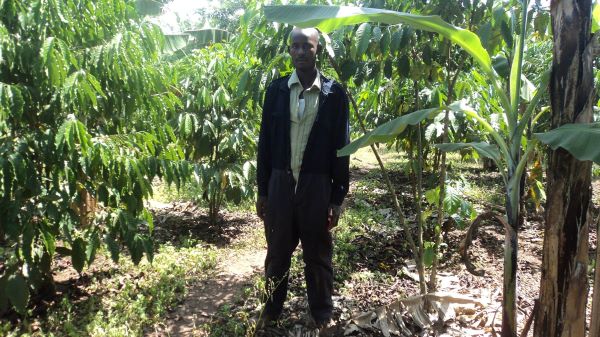KAMPALA, May 15, 2025 – Civil Society Organisations [CSOs] working in sectors including agriculture, trade, land rights, gender equality, rural women’s empowerment, and governance have raised urgent concerns over Uganda’s preparedness to comply with the European Union Deforestation Regulation [ EUDR ], with fewer than 250 days remaining before the enforcement deadline.
Uganda’s coffee exports are at risk of being banned from EU markets if the country fails to meet the regulation’s requirements.
In a recent joint statement released at Fairway Hotel in Kampala, the CSOs voiced serious concerns about the limited public consultation and lack of transparency surrounding both the transition of the Uganda Coffee Development Authority [UCDA] into a department within the Ministry of Agriculture, Animal Industry and Fisheries [MAAIF], and the implementation of the EUDR.
“Despite the significance of these reforms, there has been inadequate public engagement, limited clarity on institutional restructuring, and low awareness at the farmer level regarding the EUDR. This silence threatens to deepen existing inequalities, marginalise smallholder farmers, and expose vulnerable groups to shocks that could damage their livelihoods and Uganda’s global coffee competitiveness,” said the CSOs, led by the Food Rights Alliance [FRA], following a workshop focused on the coffee sub-sector.
The EUDR mandates that companies carry out comprehensive due diligence to ensure their products are not linked to deforestation. The regulation forms part of the EU’s broader strategy to combat global deforestation and forest degradation.
The CSOs warned that, without urgent action, Uganda risks losing access to its largest coffee export market [Europe], which currently accounts for 60 percent of the country’s coffee exports. Such a development could endanger the livelihoods of 1.8 million coffee farmers.
“The European Union purchases 60 percent of Uganda’s coffee exports. The new EUDR could block access to this lucrative market if compliance efforts fall short. Failure could cost Uganda approximately USD 1.14 billion annually and devastate 1.8 million farming households,” the CSOs stated.
The UCDA has previously led Uganda’s alignment with international coffee standards, including quality certifications and early steps toward EUDR compliance. It coordinated the national task force, initiated farmer registration, and engaged stakeholders to secure access to the EU market. However, the CSOs questioned the impact of UCDA’s absorption into MAAIF.
“How will this transition enhance Uganda’s ability to meet strict EU regulatory requirements in time?” they asked.
Coffee farming supports more than 1.7 million households in Uganda and contributes up to 30% of the country’s foreign exchange earnings. In March 2025 alone, Uganda earned approximately UGX 6.7 trillion from coffee exports.
Call to action
The CSOs urged government, through the Ministry of Trade, Industry, and Cooperatives, to negotiate market diversification strategies beyond the EU to reduce dependency risk while supporting compliance for existing EU markets; promote women-led coffee enterprises and cooperatives by facilitating access to trade finance, market intelligence, and export facilitation programs; and enhance value addition initiatives locally and ensure women entrepreneurs have access to coffee processing, branding, and marketing support.
Additionally, the CSOs called on the Ministry of Finance to ensure timely disbursement of funds allocated for the National Traceability System and farmer registration processes; introduce targeted financial instruments such as coffee bonds, concessional loans, and grant schemes) that women and smallholder farmers can easily access; and ring-fence funds for women- and youth-focused coffee programs, including training, technology adoption, and cooperative strengthening.
Furthermore, the CSOs urged Parliament to provide robust oversight to ensure the MAAIF’s timely and effective assumption of UCDA roles, with MAAIF providing an account of its performance on this mandate to Parliament in a timely manner; enact supportive legislation to safeguard women’s participation and leadership in coffee cooperatives and value chains; and ensure sustainable budget allocations for research, extension services, and gender-equity programs in coffee farming.
The CSOs also called on the Ministry of Agriculture to ensure a smooth and inclusive transition of UCDA functions by maintaining continuity in EUDR coordination roles previously handled by UCDA; expand gender-targeted extension services with a focus on climate-smart agriculture, post-harvest handling, and coffee quality improvement; and provide information and support to farmers on the farmer registration process in a coherent and timely manner.
They also demanded that women coffee farmers be organised into strong cooperatives and producer organisations to enhance collective bargaining power and service delivery; adopt and promote climate-smart agricultural practices and technologies that improve resilience to climate change; participate actively in dialogues, training, and advocacy activities to remain informed and shape decisions that affect your livelihoods; and document and share experiences and challenges to inform policy reforms and ensure gender-responsive support systems.
https://thecooperator.news/africas-coffee-exports-rose-36-3-percent-in-march-2025-report/
Buy your copy of thecooperator magazine from one of our country-wide vending points or an e-copy on emag.thecooperator.news
